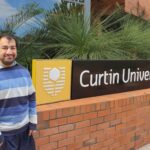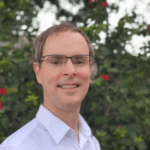Good evening Chancellor, Vice-Chancellor, members of the University Council, distinguished guests, colleagues, graduates, families and friends.
It is an honour and great pleasure to deliver this evening’s Occasional Address, and I thank Curtin University for the invitation to speak to you. I also acknowledge that we meet here this evening on the traditional lands of the Nyungar people.
Graduation ceremonies are a highlight of university life. They are both a time of pomp and ceremony – when we don the formal attire of academic dress and partake in ceremonial rites of passage – as well as a time of celebration.
We celebrate the achievements and successes of you, the graduates. We publically acknowledge that each and every one of you has met the scholarly and academic requirements for admission to the degree for which you are entitled.
At the same time we recognise that many, perhaps most of you have, at some point, overcome difficulties to be here this evening. These difficulties will have been wide and varied – be they study related, of a personal nature, or otherwise.
Nonetheless, by being here at this evening’s Graduation Ceremony you have demonstrated an ability to accept challenges and overcome the difficulties encountered along your journey through university life. This evening we celebrate your accomplishments.
However, you should bear in mind that graduating from university is not an end in itself. Rather, it is a beginning.
The skills and attributes you have developed and honed during your studies here at Curtin stand you in good stead to embark on whatever journey life presents to you. But, having demonstrated an ability to survive the ‘university experience’, you must never forget to continually adapt – to refine and enhance the skills you have developed in a lifelong learning context. I will return to this theme in a minute or two.
Graduation ceremonies are about more than you, the graduates, however. By gathering together this evening we have the opportunity, indeed an obligation, to acknowledge and celebrate the sacrifices made by the loved ones – friends and family alike – who have supported each and every graduating student.
These sacrifices may have been financial, emotional, or of some other personal nature. Nevertheless, each sacrifice has been a critically important and unique contribution to each graduate’s university experience. Without these sacrifices being made, I’m sure that many graduates would not be here to tonight. On behalf of Curtin University, I thank all those who have supported, most usually in the background, the members of this year’s graduating class.
I now turn my attention to looking forward. A few minutes ago I mentioned the phrase ‘lifelong learning’. I know that this is a phrase that each and every graduating student will have heard on numerous occasions.
Utilising ‘lifelong learning’ skills is one of the nine fundamental attributes that all Curtin students are asked to demonstrate before they are deemed ready to graduate. Ensuring students practice and enhance their lifelong learning skills is a priority task for all University staff. The goal is ensure that you, the graduating class of 2010, have the skills to adapt to an uncertain future.
What exactly ‘demonstrating lifelong learning skills’ actually entails can be a challenge for many people to articulate clearly. I’d like to take this opportunity to offer one simple piece of advice to all graduates. I contend that by following this advice, most other things are more likely to fall naturally in to place.
My advice is, in whatever path you choose, in whatever journey you commence as you leave Curtin, “follow your heart”.
Do what you enjoy doing.
In this way you’re much more likely to do what you’re doing well. And if you do it well, doors will open and opportunities will present themselves that you may have never dreamed of. In other words, you’ll be applying what you already know to new and exciting contexts – and thus engaging in lifelong learning.
If I may be so indulgent, let me use my own life experience as an example.
I am the Head of the Chemistry Department at Curtin University. I never had a career plan to be an academic, let alone an academic leader, and certainly didn’t devise an explicit program of career decisions to get to where I am today.
I enjoy my job immensely. Others think that I do a good job. I have little firm idea of where my career will take me in the medium-to-long term. But, I don’t really worry about this because I am having fun, and when I have fun I know that things will pan out.
So, how did I get to where I am today? I am a geek! Always have been. Probably always will be. I love chemistry. And that’s about all there is to it.
When I was six years old I remember going down the street with my mother and grandmother with excitement. I vividly recall standing in front of the shop window of our country town’s small toy shop. In the shop window was a large Salter’s Chemistry Set. Unfortunately, you can’t readily purchase chemistry sets of this type nowadays due to safety concerns. But, in the early 1970s they were relatively commonplace.
I don’t know what attracted me to the chemistry set in the window, but I really wanted it. On my seventh birthday, my grandmother gave me the set I desired as a birthday present. Over the years my mother grew increasing exasperated when, as the complexity of the chemistry set grew, she would find me “borrowing” the kitchen cutlery and crockery to become key parts of my latest “volcano” reaction or rotten-egg-gas generating experiments. For some reason, Mum never wanted the gear I borrowed back in her kitchen!
I studied science and maths in high school because I loved chemistry. I enrolled in a science degree at university for the same reason. I had no idea of what type of job I wanted at the end of my studies, I just loved chemistry.
The enjoyment I gained from my chemistry studies opened doors that I would never have imagined existed. As a third year university student I worked on an enjoyable research project under the supervision of a young academic. My supervisor had started his academic career that year having undertaken his Ph.D. and postdoctoral studies in the United States.
The next thing I know, I’ve looked into my options, sat all the entrance exams, and found myself studying for a Ph.D. in Chemistry at Stanford University in California. I enjoyed research and found myself then undertaking postdoctoral research studies at Yale University. This certainly wasn’t a plan – it just happened as part of a journey!
Towards the end of my postdoc I still didn’t know what I wanted to do with my life – other than it had to involve chemistry. I decided to give academia a whirl. I don’t really know why (other than being familiar with the university research culture), and was certainly prepared to get a job, preferably involving chemistry research, in the “real world” if I didn’t like it.
I had the enviable dilemma of having to decide between Lectureship job offers at two leading Australian universities. To this day I’m convinced that the offers I had were a direct result of my enthusiasm and passion for what I do.
It turns out that I loved academia! On top of being able to pursue my research interests, I found that I loved teaching chemistry to undergraduates. And, because I enjoyed it, I think that’s why I found that I was really quite good at it. I worked my way through the academic ranks, and found myself moving to Curtin to become the Head of Chemistry a little over 12 months ago.
I’ve told you that story to illustrate that by following your heart, doing your best, and enjoying yourself along the way, good things can, and do, happen.
I encourage you all, as you graduate from Curtin this evening, to choose your own path based upon what you enjoy doing. Each and every one of you has the potential to stand here in the future and tell tomorrow’s graduates how you succeeded by following your heart.
I wish you all the very best in your future endeavours. Curtin has prepared you well to achieve great things and to become the visionary leaders of tomorrow. The next step is up to you.
Thank you.


